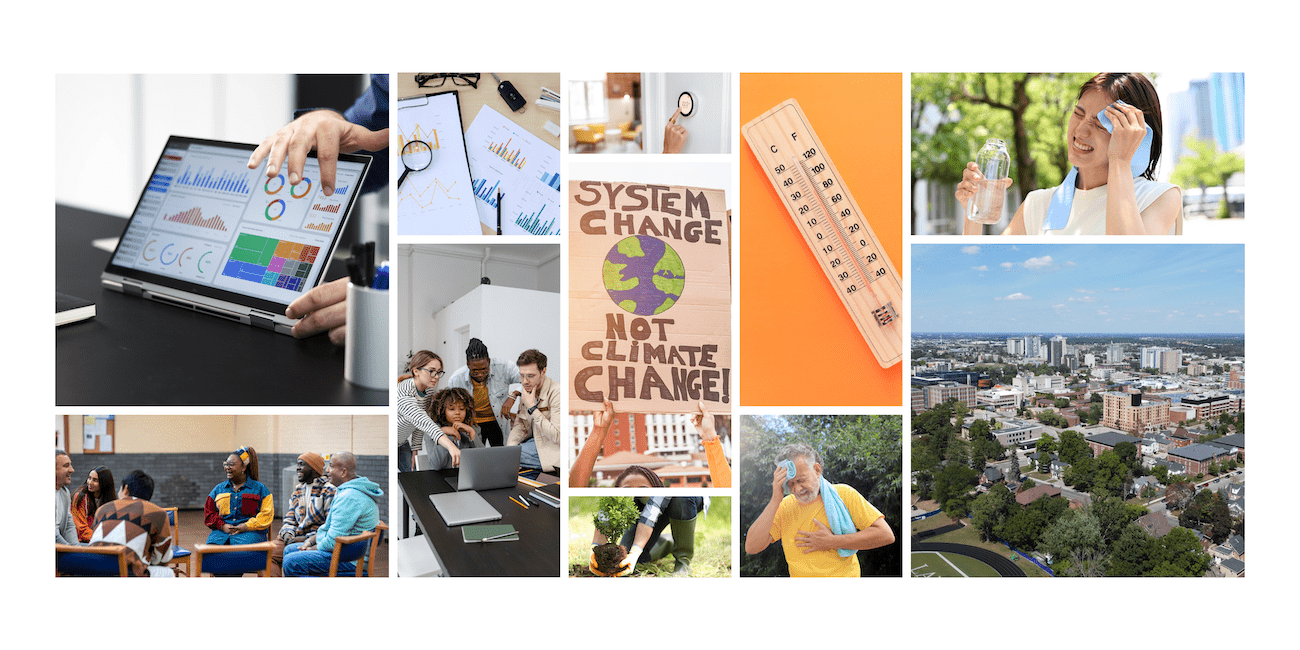AI, Population Data Drive Vanier Scholar’s Predictions
Heatwaves are an increasing threat in Canada, especially to vulnerable populations, including those with pre-existing health conditions, children, the elderly and those who lack the resources to beat the heat.
Irfhana Zakir Hussain, a PhD candidate in the School of Public Health Sciences and Systems Design Engineering, is working to predict and map which Waterloo neighbourhoods are most at risk of harm during heatwaves using new and existing data.
“Heat is one of the most immediate and severe consequences of climate change,” Hussain says. “It is something that we can physically feel but not necessarily know what to do about.”
Hussain has been awarded a 2025 Vanier Canada Graduate Scholarship for her project, Heatwave Hero: A Proactive System to Predict and Prevent Extreme Heat Health Crises, under the supervision of Dr. Plinio Morita. She will receive $50,000 per year for three years toward her studies.
“It is an honour to have been nominated in the first place, with so many talented people here at the University of Waterloo,” Hussain says. “The Vanier Scholarship recognizes students doing important research, but it also provides them with the space to do that research without worrying about external factors with respect to finances and credibility.”
The goal of her project is to mitigate the negative effects of heatwaves, focusing on neighbourhoods where people are most likely to need intervention.
“Some homes, especially in lower-income neighbourhoods, don’t have access to cooling resources and people may live in structures with poor insulation or infrastructure issues,” she says. “We’re currently trying to incorporate indoor smart thermostats in these neighbourhoods to collect information we can then use as an indicator.”
Working closely with the City of Waterloo and the Waterloo Regional Health Network, Hussain and her team are also using historical climate data and hospital records to make their predictions while also taking into account the population density and income levels of different neighbourhoods.
Hospital records include ambulance calls and hospital visits that provide an inside look on how often people are calling for emergency services for heat-exacerbated illnesses, including respiratory and cardiovascular conditions that worsen during extreme heat.
The team is using machine learning to help piece the data together, creating patterns and predictions that can be represented on a map. The map will then be created into a dashboard where city officials can see when and where a climate event is likely to take place, making it easier to send help.
“We hope to end up with a system that can actually inform the way we protect and safeguard the health and safety of the people who live here,” she says.
The dashboard will provide crucial information to authorities which can help them make decisions regarding resource allocation in preparation for these events. Rather than viewing the city as a whole, city officials can make data-driven decisions at the neighbourhood level, focusing on equity rather than equality.
In the future, Hussain plans to expand the project beyond Waterloo by taking the same framework and applying it to cities and neighbourhoods in low- and middle- income countries.
“We haven’t decided where we would like to adapt this framework, but the goal would be to use what we’ve learned in Waterloo as a prototype, since we have so many resources and so much data here,” she says. “We will then tailor the framework to the needs of the individual communities, taking into account their differences in infrastructure and government.”
Hussain holds a Bachelor of Tech Computer Science and Engineering from the SRM Institute of Science and Technology in India. She is also pursuing a graduate diploma in climate change alongside her PhD and says it’s important to focus not only on the health crises caused by extreme heat events, but environmental crises as well.
While AI projects are increasingly used to help tackle problems associated with climate change, they do not often take into account their own climate change contributions. Data centres, service providers and electronic waste can have great negative effects on the environment.
“A very important aspect of this project to me is looking at the projected environmental cost of the system and of the models we’re developing instead of just looking at how accurate and fast the model can perform,” Hussain says. “We’re trying to minimize the environmental cost of this system as much as possible.”
https://uwaterloo.ca/news/vanier-scholar-uses-population-data-and-ai-make-predictions-0
View Original | AusPol.co Disclaimer
